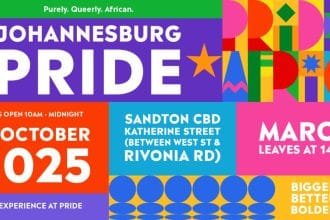As Gauteng faces a significant water crisis, Rand Water has announced the implementation of Level 1 water restrictions, which will remain in effect until March 2025. This decision stems from several factors, including high water consumption, illegal mining activities, and unauthorized connections, as highlighted by Rand Water CEO Sipho Mosai. With the situation continuing to escalate, residents must understand what these restrictions entail and how they can contribute to water conservation efforts.
Understanding the Water Crisis in Gauteng
The water crisis in Gauteng is a multifaceted issue that poses serious challenges to residents and municipalities alike. Rapid urbanization, population growth, and increasing demand for water have put immense pressure on existing water resources. Additionally, illegal mining operations and unauthorized connections have exacerbated the situation, leading to substantial water losses. Municipal entities, such as Johannesburg Water, are grappling with these challenges while trying to maintain reliable service delivery to residents. The situation has been further complicated by reported outages amid high consumption levels, which have prompted urgent action from authorities.
What Level 1 Water Restrictions Mean
Under the Level 1 restrictions implemented by Rand Water, several key measures are in place to encourage responsible water usage among residents:
- Garden Watering Prohibition: The watering of gardens is prohibited between 6 AM and 6 PM. This restriction aims to reduce evaporation losses during the hottest parts of the day and ensure that available water is conserved for essential uses.
- Restrictions on Washing: Residents are no longer permitted to wash paved areas and driveways using hosepipes. This measure helps to limit unnecessary water consumption and encourages individuals to seek more sustainable cleaning methods.
- Promoting Water-Saving Habits: In addition to these restrictions, Rand Water has emphasized the importance of adopting water-saving habits in daily life. Residents are encouraged to:
- Avoid Dripping Taps: Do not leave taps running or dripping, as this can lead to significant water waste.
- Wash Cars on Grass: Use grey water to wash cars, as this not only conserves water but also nourishes lawns.
- Shorten Shower Times: Reducing shower time can lead to substantial water savings.
- Rinse Teeth with a Glass: Use a glass of water for rinsing while brushing teeth instead of running the tap.
- Limit Bath Depth: When taking baths, keep the water level shallow—no deeper than 100mm.
- Reuse Grey Water: Utilize grey water for watering gardens or potted plants.
- Fix Leaks Promptly: Ensure that any leaking taps or plumbing fixtures in the home are repaired to prevent water loss.
Reasons for Level 1 Restrictions
The decision to implement Level 1 water restrictions is driven by several pressing factors. High water consumption rates in Gauteng, particularly in urban areas, have made it necessary to adopt more stringent measures to ensure the sustainability of water resources. Illegal mining operations contribute to the depletion of water sources, while unauthorized connections lead to wastage and increased pressure on municipal supply systems.
The challenges faced by Johannesburg Water, including reported outages, underscore the urgent need for collective action. With residents facing low water pressure, especially in critical facilities like the Charlotte Maxeke Academic Hospital, it is essential to address these issues proactively to ensure that all communities have access to reliable water supplies.
The Way Forward
As Gauteng moves forward with Level 1 water restrictions, residents must understand their role in mitigating the water crisis. Every individual can make a difference by adopting water-saving practices and adhering to the restrictions in place. Community awareness and education initiatives can help promote responsible water use and ensure that residents are informed about the importance of conservation efforts.
Additionally, authorities must continue to address illegal mining activities and unauthorized connections to protect water resources. By enforcing regulations and holding offenders accountable, Rand Water and municipal entities can work together to safeguard the water supply for all residents.
The implementation of Level 1 water restrictions is a necessary step in addressing the ongoing water crisis in Gauteng. By understanding what these restrictions mean and actively participating in conservation efforts, residents can play a vital role in ensuring a sustainable water future for the region. It is only through collective action and responsible water usage that Gauteng can overcome the challenges it faces and secure its water resources for generations to come.












